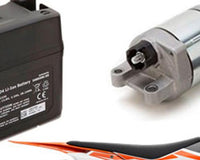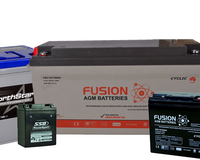Table of Contents
Car battery recycling is one of the success stories of our time. Just over 30 years ago, most car batteries ended up in landfills where they leaked heavy metals into the soil polluting the environment.
Now, that’s no longer the case. An estimated 95 per cent of lead-acid batteries are recyclable and technologies to recycle zinc, lithium, nickel, and mercury batteries are available.
Recycling has many benefits and recycling car batteries especially so. The environmental, social and economic benefits are numerous and far reaching.

There are some disadvantages to recycling car batteries but we believe that with the right investment and oversight, these can be overcome.
What is Car Battery Recycling?
Car battery recycling is when certain parts of an old car battery are taken and processed so that they can be used to manufacture other products.
Car batteries are referred to as secondary batteries. This means that they can be recharged after use and can be used many times over. But, over time, car batteries stop charging to maximum capacity by which point they need to be replaced.
Because there's a wide variety of car batteries, there are different ways of recycling them. One such example is shown below.
Batteries contain many different materials and some of these (precious metals in particular), are recyclable.
During the recycling process, lithium ions, cadmium, and nickel are separated from the plastic components of old batteries.
These metals are smelted and ultimately separated and purified into individual metals, which can be used to make new batteries or other metal products.
5 methods are used to separate the different metals found in car batteries:
- Chemical Precipitation Method
- Solvent Extraction
- Ultrasound-Assisted Leaching Technology
- Fire Method.
- Biological Method
The particular method used depends on what metals need to be extracted and the type of byproducts that the recycling plant wants.
The Pros of Car Battery Recycling
There are many pros of car battery recycling and these benefits affect the environment as well as the welfare of people involved in car battery recycling.
The list below isn’t exhaustive, there are many more benefits than we could list here. These are just our top 3.
Battery Recycling Reduces Landfill Burden
Any battery that is not recycled ends up in a landfill. With an estimated 15 billion batteries being disposed of each year, many landfills end up being overloaded with batteries.
Car batteries contain toxic heavy metals such as lead, cadmium, nickel, and lithium. When a car battery is thrown away with regular household trash, it ends up in a landfill.
Over time, noxious metals leak into the soil and pollute water sources.
Lithium is particularly volatile and can cause underground fires that burn for many months, releasing more byproducts and polluting the air that we breathe.
When car batteries are recycled, the different toxic metals that can’t be recycled, such as mercury, are separated and disposed of safely.
This way, the landfill burden is reduced and the associated pollution of groundwater, as well as air pollution, are reduced as well.
Battery Recycling Reduces the Need to Mine New Raw Materials
Old batteries contain precious metals that can be recycled. When metals are recycled, this reduces the need for new raw materials to be sourced.
The mining industry alone produces between 1.9 to 5.1 gigatons of greenhouse gases per year.
Greenhouse gases are directly linked to global warming, so anything that results in the reduction of greenhouse gas emissions has a positive effect on the environment.
As more batteries get recycled, there’s less demand for these precious metals to be mined and by buying recycled batteries, you’re also helping the environment.
Battery Recycling Creates New Jobs
As the recycling industry continues to expand and more resources are being channelled to make it more profitable, the number of job opportunities that it offers has also increased.
Recycling is a hands-on process requiring both unskilled and semi-skilled workers.
Recyclable materials must be collected from the different drop off points. This requires unskilled workers.
After collection, car batteries need to be disassembled and separated into parts that can be recycled and those that can’t. Semi-skilled workers are very well suited to these jobs.
Metal recycling is not as simple as just taking old metal and repurposing it. Old metals need to be reprocessed so that they can be made into completely new metal parts. Skilled and trained workers are required for such jobs.
The Cons of Car Battery Recycling
Now that we’ve discussed the main benefits of car battery recycling, let's take a look at the other side.
Battery Recycling Can Cause More Pollution
Even with the best intentions, sometimes things don’t go as planned. The bulk of car battery recycling is usually contracted to large corporations but not always.
A large percentage of battery recycling is completed by small companies and scrapyards. In most cases, these are unregulated and their systems are unmonitored.
As a result, there have been cases of environmental pollution caused by car battery recycling. Lead pollution has led to brain damage in exposed children. It has been found in the soil and water sources close to recycling plants.
Even so, many large battery manufacturing corporations are setting up recycling plants or partnering with already functional plants.
With more oversight and investment, environmental pollution can be a thing of the past.
Battery Recycling Can Be Expensive
Setting up a recycling plant is expensive and requires considerable investment. This has limited the growth of the recycling industry as the profits cannot cover the associated costs.
Everyone knows that recycling helps to maintain the environment for future generations.
However, big corporations that have the resources to invest in recycling are deterred because recycling can be time-consuming and costly compared to mining new raw materials.
Nevertheless, the future benefits of recycling are worth investing in now. Future generations will benefit from the steps taken now towards living a more sustainable life.
How to Properly Dispose of Old Car Batteries
Okay, so now you've decided to recycle your old car batteries. How can you go about doing so?
Well, at HBPlus Battery Specialists, we know how important it is to recycle and we have taken steps to make battery recycling simple for our clients.
Century Yuasa has many battery recycling centres all over Australia and they recycle old batteries at no cost to the consumer.
If you find that you’re far away from any of their depots, you can inquire at your local electronics store if they accept old car batteries for recycling.
High-quality Battery Services
Before you get rid of your old car batteries, you may want to start by replacing them first with good quality ones.
HBPlus Battery Specialists is a premier battery stockist. Our specialist services include designing, manufacturing, and distribution of a wide selection of car batteries. We can refurbish or repack old batteries on-site.
No order is too small or too big for us and all of our services are offered at very competitive prices.
Frequently Asked Questions
How do you dispose of a car battery?
The best way to dispose of an old car battery is by recycling it. Vehicle
batteries can only be recycled in facilities that have battery recycling capabilities.
These are not always readily available so the best way to make sure that your car battery is recycled is to drop it off at your local garage or recycling centre.
Usually, the workers there will know how to recycle batteries or where to send old batteries that need to be recycled.
Can you recycle car batteries for money?
Scrap yards are your best bet if you’re looking to make a quick buck from your old car batteries. The actual amount that you receive depends on the type of battery that you’re disposing of and how much it weighs.
Some recycling plants pay for old car batteries but you’d need to do your research to find out which ones offer this service.
Is it worth it to recycle batteries?
Yes. It's worth it to recycle your old car batteries.
Car batteries are hazardous waste. Whenever they’re not recycled, there’s a good chance that they will pollute the environment.
Batteries contain precious metals that can be reused in manufacturing other products. This reduces the need to mine more metals for use in industry.
When you recycle, you do your part for the environment.











